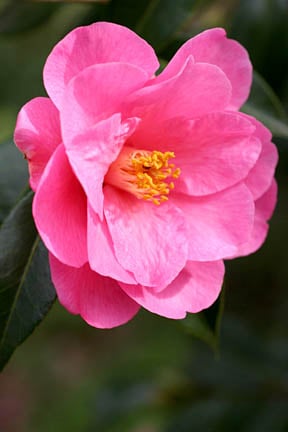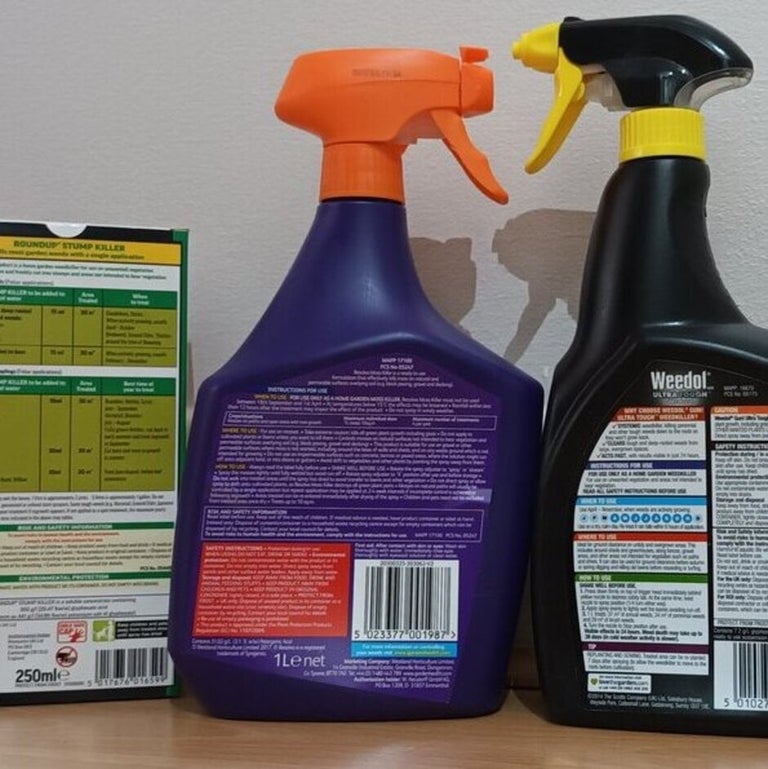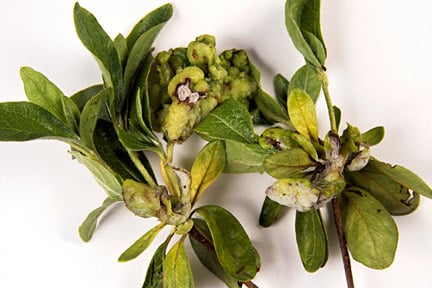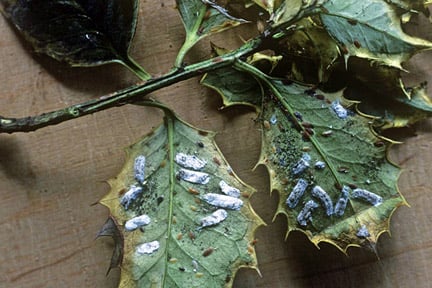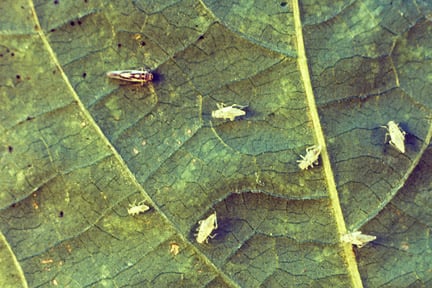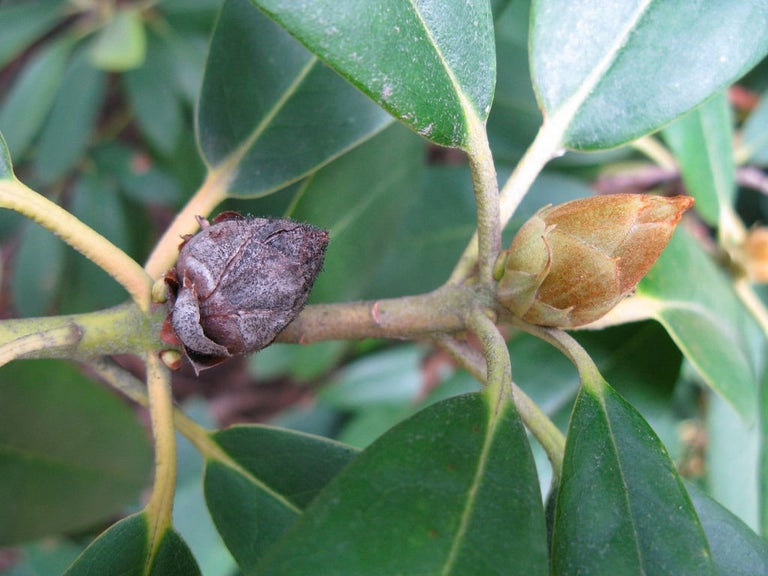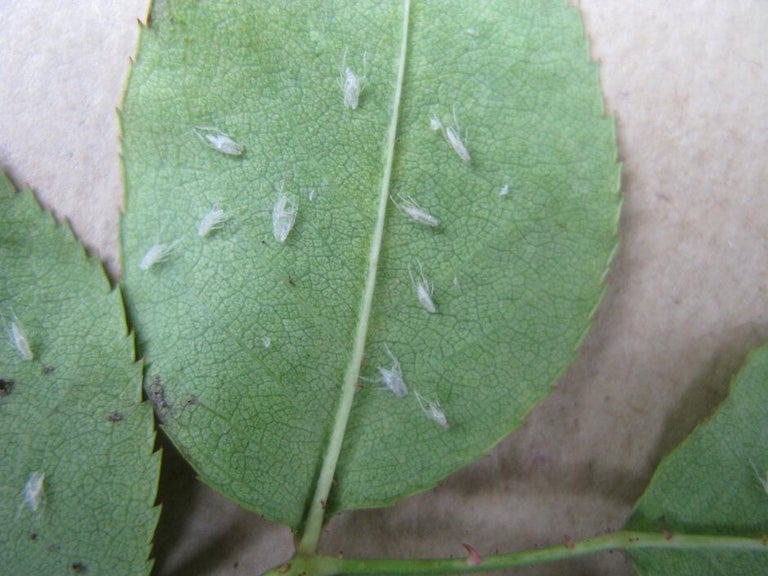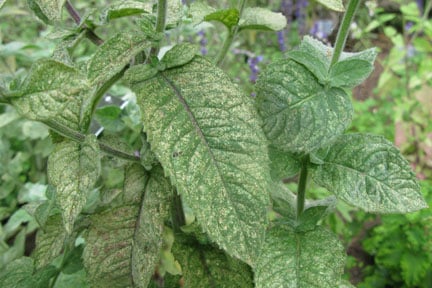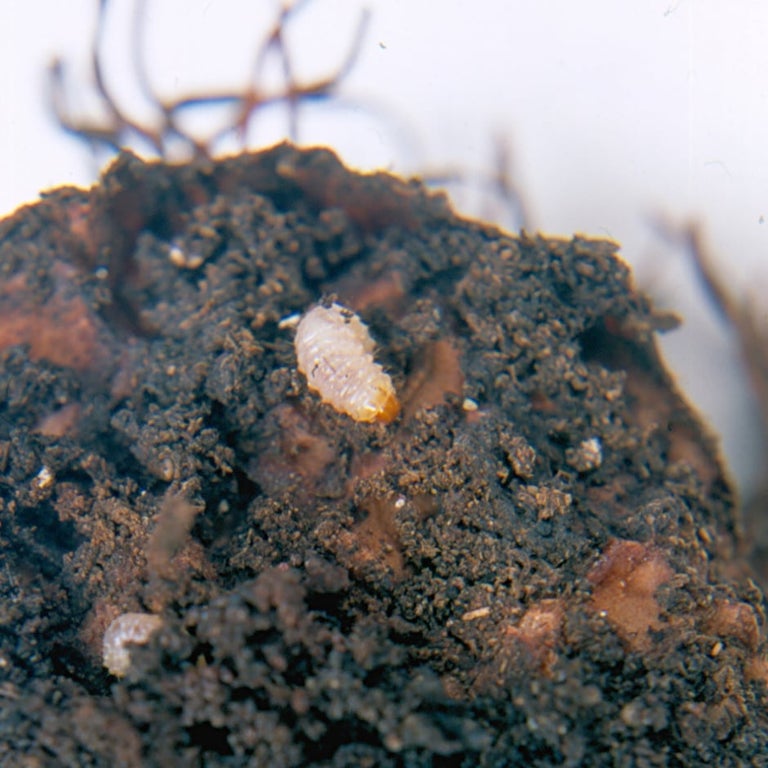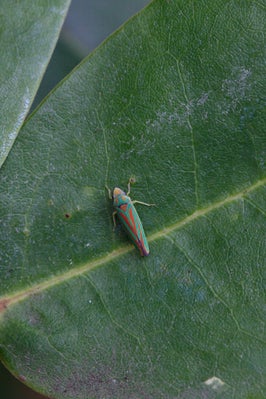
Quick facts
Common name - Rhododendron leafhopper
Scientific name - Graphocephala fennahi
Plants affected - Rhododendron
Main cause - A sap-sucking insect that may facilitate the spread of bud blast
Timing - July-October
What are rhododendron leafhopper and bud blast?
The leafhoppers are a family (Cicadellidae) of sucking true bugs, there are more than 180 species found in Britain. They can jump or fly short distances and most do not feed on or cause noticeable damage to garden plants. Find out more about British species from British bugs.
Rhododendron leafhopper only feeds on rhododendron. It is active from late spring to autumn but is most noticeable when the brightly coloured bluish-green adults are present in late July-October.
blast spoils developing flower , it is a fungal infection thought to be associated with the activities of the leafhopper although this is may be an assumption.
Symptoms
The nymphs of rhododendron leafhopper are creamy white wingless insects that live on the underside of rhododendron leaves. The adults are 8-9 mm long and have pale yellow heads with a bluish green thorax. The wings are folded back along the body and are bluish-green with two orange stripes. The adults often rest on the upper surface of the foliage in sunny weather but readily leap off when disturbed. White cast skins shed by the nymphs may be seen attached to the underside of leaves.
The feeding activities of the adults and nymphs have no obvious adverse effect on the appearance of the foliage or the plant's vigour. There would not be a problem if the females did not make egg incisions in next year's flower in late summer-autumn. A fungus, known as bud blast (Seifertia azalea), may infect the buds through the egg wounds, although some research has placed doubt on this assumption. Infected flower buds turn brown and die.
Management
Rhododendron leafhoppers are part of the healthy rhododendrons support.
- Rhododendron leafhopper does not affect the growth or vigour of plants and so can be tolerated
- Encourage predators and other natural enemies of suckers, in the garden, such as birds, ladybirds, wasps and ground beetles
- Flower infected with blast can be picked off and disposed of to reduce the amount of fungal spores being released in the vicinity, this is only feasible for smaller plants
Biology
Rhododendron leafhopper has one generation a year and it overwinters as eggs that are laid during late summer-autumn in developing flower . It is during the egg-laying period that it was thought that flower buds became infected with blast. The eggs hatch in late April-May and the wingless nymphs feed by sucking from the underside of the leaves. The nymphs reach the adult stage in late July-August.
